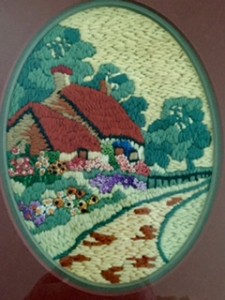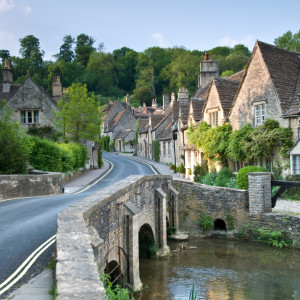Sandra’s post on May 11th regarding her exhausting (in both contexts) research on Roman history and life is the perfect lead in to my much less ambitious undertaking.
Here is the link to her post: https://authors.riskyregencies.com/2015/05/06/fictionalizing-the-past/
Really, after fifteen years of researching regencies, and writing them, I thought I knew all I needed to know. I’ll be honest and admit I wrote around the subjects that did not interest me too much (Parliament and politics for one) but felt I had a good handle on how MY Regency set characters lived.
In fact, writing a historical requires its own sort of world building. Not as totally as, say science fiction, but certainly there is a lot of room for the imagination. In the end the writer interprets the regency lifestyle based on her understanding of history and her own view of life, or how she would like life to be. Without a doubt the importance of the history of time and place matter more to some authors and readers than it does to others.
It’s important to me. I was a history major in college (American history unfortunately) and brought that fascination with me when I decided to write a regency. I have been forever grateful to early blogs I participated in. They gave me a chance to share the information that I never used in a story but could not abandon before I knew way too much about said subject.
Now I’m faced with a challenge. I’m starting a series I referred to in my last blog post. Here is the link if you want to catch up: https://authors.riskyregencies.com/2015/04/20/writing-and-reading-a-series/
I find I need to know everything I can about the life of an Anglican vicar. From the get go I can see MY vicar is not cast in the usual mode. The spiritual life and general well-being of the people in his village are more important to him than an invitation to the right homes or parties (definitely not a Mr. Collins.) I can deal with that. But, because of it, I want to get as much of the rest of his world right.
I’ve pulled all possible books off my shelves including a treasure titled A COUNTRY PARSON 1759 to 1802. Too bad it’s before the war with Napoleon but it should still be useful, don’t you think?
In the meantime here is what Pennsford looks like. I’m sure I can count on you to ignore the modern roadway.
The picture above, after the third paragraph, is a hand-stitiched image of one of Pennsford’s cottages
Please tell me how you start researching a subject you know little about and, as reader, how important to you is the accuracy of the world a regency author builds. And if anyone knows any specific books about a vicar’s life around 1817 please share!

I can see a dirt road where the blacktop is now, no problem!
I wonder if there might be some vicar journals or biographies available through the various larger churches in England?
Keep researching and writing, Mary!
lws
See Elena’s response below. Thanks Lynn. Will start the search for more journals and bios. Wish I could head to England for the work but will probably have to rely on the Internet!
Mary, if you haven’t already read it, I really liked A TESTIMONY OF HER TIMES: Based on Penelope Hind’s Diaries and Correspondence 1787-1838 by Sarah Markham. Penelope Hind was the wife of two clergymen, her first husband having died far too early. There’s a lot about life in a country vicarage and the relationship between the family and servants, etc…
Great resource Elena — will look it up as soon as I send this!
Mary! So excited to hear you are doing a series with Michael and Olivia, two of my favorite characters of yours. As to your question, I write contemporary, but the time I wrote a book set in 1950 I did like you did and read several biography type books vs straight history. As a reader I love the setting details, inside and outside those houses, and have always believed the ‘place’ was a character too. Good luck with your search for books on a vicar’s life.
Thanks Emelle. Cannot wait to read your book set in the 50’s. Your others have been great. I bet it was just as hard to find out how truly different life was then as it is for me researching the early 19th. I’m serious. Those who remember see it through the haze of time. For me the best research is when you find something written in the form of journal entries on the day it happened rather from some later in life perspective. But I will take what I can get at this point.
Mary, I am so looking forward to reading this book! I think everyone at the Riskies knows I am a huge collector of Regency research books. I’ve had to turn the master bedroom into my writing studio because it is the biggest room in the house and has the most wall space for bookcases. I also keep notebooks of research I’ve printed from the internet – some of it copies of posts from this very blog. And I have notebooks from workshops I’ve taken online about Regency era topics. My only problem is getting mired down in the research!
Hi Louisa! I follow your Facebook commentaries on your favorite books and ran around looking for one you had and praised highly. I knew it was around somewhere. Thanks for sharing your knowledge.
Mary, I avoid researching topics that I don’t find as interesting also, but unfortunately that includes such things as fashion that most readers enjoy. I usually am content to know that the gown was blue (or whatever color), and generally only do more description if it’s going to be important. What I think is interesting is the variety of descriptive details in different authors’ books. I do enjoy reading it all, but when it comes to research I mostly seem to veer off into abstruse topics that turn out to be hard to find information about. And then I kick myself for thinking that (insert topic) would be interesting to include in the story. And every time I find myself having to write scenes set in London during the season, I immediately plot ways to get my people out of there as soon as possible. Thinking up new ways to describe the same old entertainments very quickly taxes my powers of invention.
Judith — you write what appeals to you and so many readers! I love clothes and especially homes and all things with bling. Not horses which is a real downer when it comes to things Regency. Fortunately there are books aplenty and lots of experts willing to share.
I wish people would stop mentioning books to use as reference! I have the same problem as Louisa–an addiction to buying research books!
I don’t have any brilliant ideas to help you research. With all my books, I usually start with Wikipedia!
Hi Diane — your reply was posted to Mackenize’s comment so hers will be here. I think “credible” is a great word to sum up someone’s Regency world or any other world. Makenzie, the idea is solid in my head and the first two pages are written … you have now added to my motivation.
Mary ~ I love the idea of your new series. I have no good resources for you to do your research, unfortunately. However, I will keep my eyes open should I come across anything. For me, it’s not important that a writer get everything 100% correct in their writing of a Regency romance, however, the setting and world building needs to be credible to me so that it doesn’t yank me from the story. Can’t wait to read this new series! Sounds like a winner! ;0)
My home library is dwindling. I try to decide if the info I have in a book is available online and then take the books to my local second hand book store. I tend to keep picture books — which indicates that the five year old in me is alive and well.
Mackenize — your reply is for Diane and yours follows her comment. Oops, my mistake which I will learn how to correct eventually. Still new to Word Press!
I can’t wait for this book. What great characters.